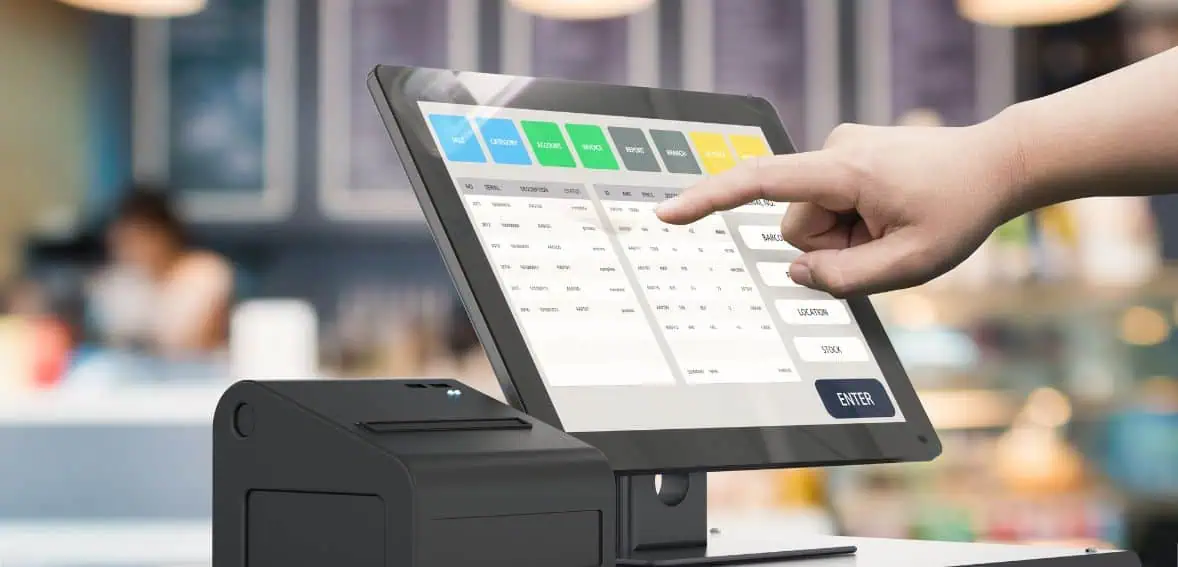Perks Of Upgrading Point of Sale
It is time to abandon old-school systems and keep up with technological advancements. This will help to avert the long-term problems and challenges of using ‘old-school.’
For instance, your business may be at risk of a security breach if you do not miss out on powerful tools that come with newer equipment. One has to keep ‘their ear on the ground’ to know of the latest updates.
The 15th Annual Customer Engagement Survey from Boston Retail Partners noted that the life expectancy of Point Of Sale hardware has decreased from 8 to 10 years to just 3 to 4 years. Cloud-based POS systems are currently dictating the market and need constant upgrades to prevent obsolescence. Therefore, it is crucial to keep upgrading point of sale regularly.
Why Should You Update Your Point Of Sale System?
1. Broad Range Of Payment Options

The customer is considered, and he or she is given options to pay most conveniently. Currently, Mobile payment processing is trending to overtake credit card processing.
Offering a broad range of payment options is increasingly necessary to enhance customer satisfaction and drive business growth. This flexibility caters to a broader audience by accommodating the diverse preferences and financial habits of different customers. Whether it’s traditional methods like cash, credit, and debit cards or modern solutions such as digital wallets, online banking, and cryptocurrencies, providing various payment options ensures every customer can find a convenient way to pay.
This approach not only streamlines the checkout process but also fosters a sense of inclusivity and adaptability. For businesses, this can lead to increased conversion rates, reduced cart abandonment, and a more substantial, more loyal customer base. In a globalized market, where customers from various backgrounds and regions interact with your business, offering a broad range of payment options becomes a powerful tool in expanding your reach and enhancing your brand’s appeal. This strategy also signals that a company is forward-thinking and customer-centric, qualities that can significantly boost its competitive edge in today’s fast-paced market.
2. A Decrease In Irregularities
Upgrading your Point of Sale (POS) system can be a transformative step toward minimizing irregularities in your business operations and enhancing efficiency and customer trust. Modern POS systems have sophisticated features to reduce errors, prevent fraud, and streamline transaction processes. These systems can significantly decrease the likelihood of manual entry mistakes, pricing inconsistencies, and inventory discrepancies, which are familiar sources of irregularities in retail and hospitality businesses.
Furthermore, an upgraded POS system can offer advanced security features, such as end-to-end encryption and tokenization, which safeguard against data breaches and unauthorized transactions. This protects your business and customers and ensures compliance with industry standards and regulations. Integrated with your POS, real-time inventory management can drastically reduce the chances of stock irregularities, allowing for accurate tracking of sales and inventory levels. This integration facilitates timely reorder alerts, preventing stockouts or overstocking and optimizing inventory management.
An upgraded POS system provides detailed reports and analytics, offering insights into sales patterns, employee performance, and customer preferences, allowing for data-driven decision-making. This level of detail and accuracy in reporting further aids in identifying and rectifying any operational irregularities swiftly, ensuring your business operations are smooth and reliable. In summary, upgrading your POS system is a strategic investment that minimizes irregularities and enhances overall operational efficiency, security, and customer satisfaction.
3. Employee Scheduling
Upgrading to the latest Point of Sale (POS) system introduces an advanced, integrated approach to employee scheduling, significantly enhancing operational efficiency and employee satisfaction. This modern solution streamlines the scheduling process, allowing managers to quickly create, adjust, and distribute work schedules directly through the system while providing real-time visibility into staff availability and preferences. The ability to accommodate time-off requests, view schedules, and swap shifts through the POS platform simplifies management tasks and boosts staff morale. Furthermore, the system’s analytics can forecast business needs, aligning staffing with expected activity levels to optimize staffing during peak times and minimize labor costs during slower periods.
Moreover, the latest POS systems ensure compliance with labor laws through automated alerts, preventing scheduling conflicts and protecting the business from potential legal issues. This level of automation and insight into employee performance and sales data supports informed scheduling decisions, ensuring that the workforce is effectively aligned with business needs. By upgrading your POS system, you not only make employee scheduling more efficient but also leverage technology to create a fair, compliant, and productive work environment, contributing to the overall success of your business.
4. Cuts on Administrative Overheads
Upgrading your Point of Sale (POS) system streamlines administrative tasks and significantly reduces overhead costs by automating key business operations. Modern POS systems have features that simplify inventory management, eliminating the need for manual stock counts and reorder processes through real-time tracking and automation. This not only minimizes human error but also optimizes inventory purchasing decisions. Integration capabilities with accounting software, customer relationship management (CRM) systems, and employee scheduling tools further alleviate the administrative load. Financial transactions are automatically recorded, and data synchronization streamlines the accounting process, reduces financial reporting errors, and simplifies customer and employee management by consolidating operations into a single platform.
Moreover, the advanced reporting and analytics provided by upgraded POS systems offer deep insights into sales trends, employee performance, and customer behavior without the manual effort of data analysis. These insights enable more informed decision-making, leading to efficient operational strategies and targeted marketing efforts that lower marketing and operational expenditures. The combination of automation, integration, and intelligent analytics inherent in modern POS systems not only cuts down on administrative overheads but also enhances overall business efficiency and competitiveness cost-effectively.
5. Loyalty Trend
Upgrading your Point of Sale (POS) system can revolutionize loyalty trends by enabling the implementation of sophisticated loyalty programs and personalized marketing strategies. With integrated loyalty features, you can incentivize repeat purchases, reward customer loyalty, and gather valuable data for targeted campaigns. These programs foster stronger emotional connections between customers and your brand while driving revenue growth through increased customer satisfaction and word-of-mouth referrals.
By leveraging comprehensive customer data, including purchase patterns and preferences, you can create personalized offers and recommendations that enhance the customer experience and strengthen brand loyalty. Additionally, omnichannel capabilities allow customers to seamlessly earn and redeem rewards across multiple channels, further incentivizing engagement and bolstering long-term loyalty.
6. Customer Contact

Upgrading your Point of Sale (POS) system offers many benefits for customer contacts. With advanced CRM capabilities, you can store and manage customer information effectively, tailoring interactions with personalized promotions and loyalty rewards. Integrated communication channels facilitate staying in touch with customers through targeted messages, while streamlined feedback collection mechanisms provide valuable insights for enhancing satisfaction. Efficient order management and data-driven insights improve the overall customer experience, optimize business operations, enable proactive decision-making, and improve marketing strategy. Integration with loyalty programs further incentivizes engagement, fostering stronger relationships and differentiation in the market.
7. No Limitations To Geographical Access
Access can be from anywhere in the world, and thus, management has been made portable, and despite the distance, it is instant.
8. Advanced Analytics
These involve using external information to know how it will impact business and help make decisions. For instance, local events, weather conditions, etc.
9. Managing Activities From A Dashboard

Levels of inventories can be efficiently managed as the Point Of Sale system will help note down what has gone out and deliveries coming in.
10. Linking of Departments
Departments, branches, stations, etc., can all be connected, and the sales can be assessed from a single point, reducing costs of traveling for information and investments.

